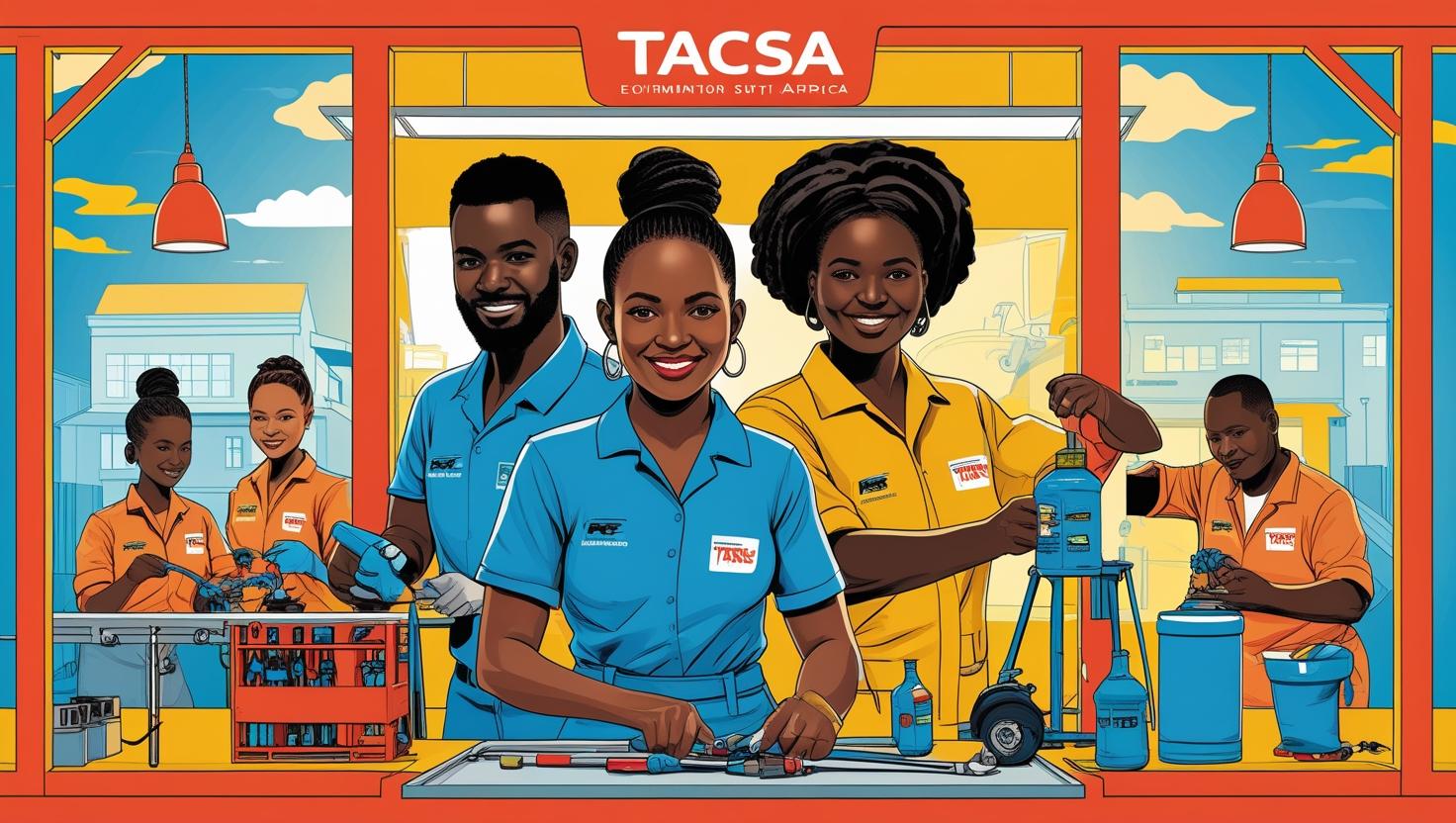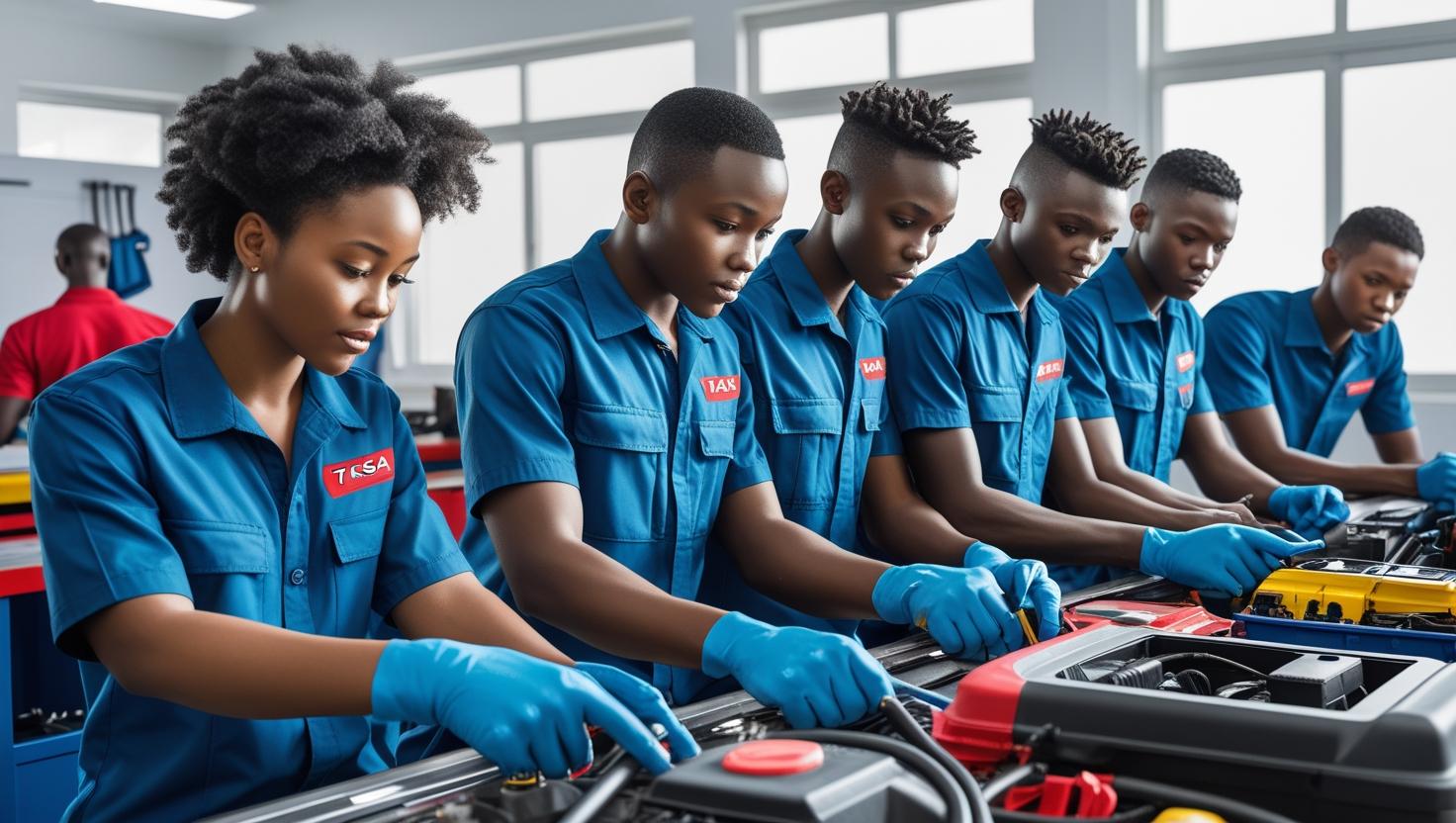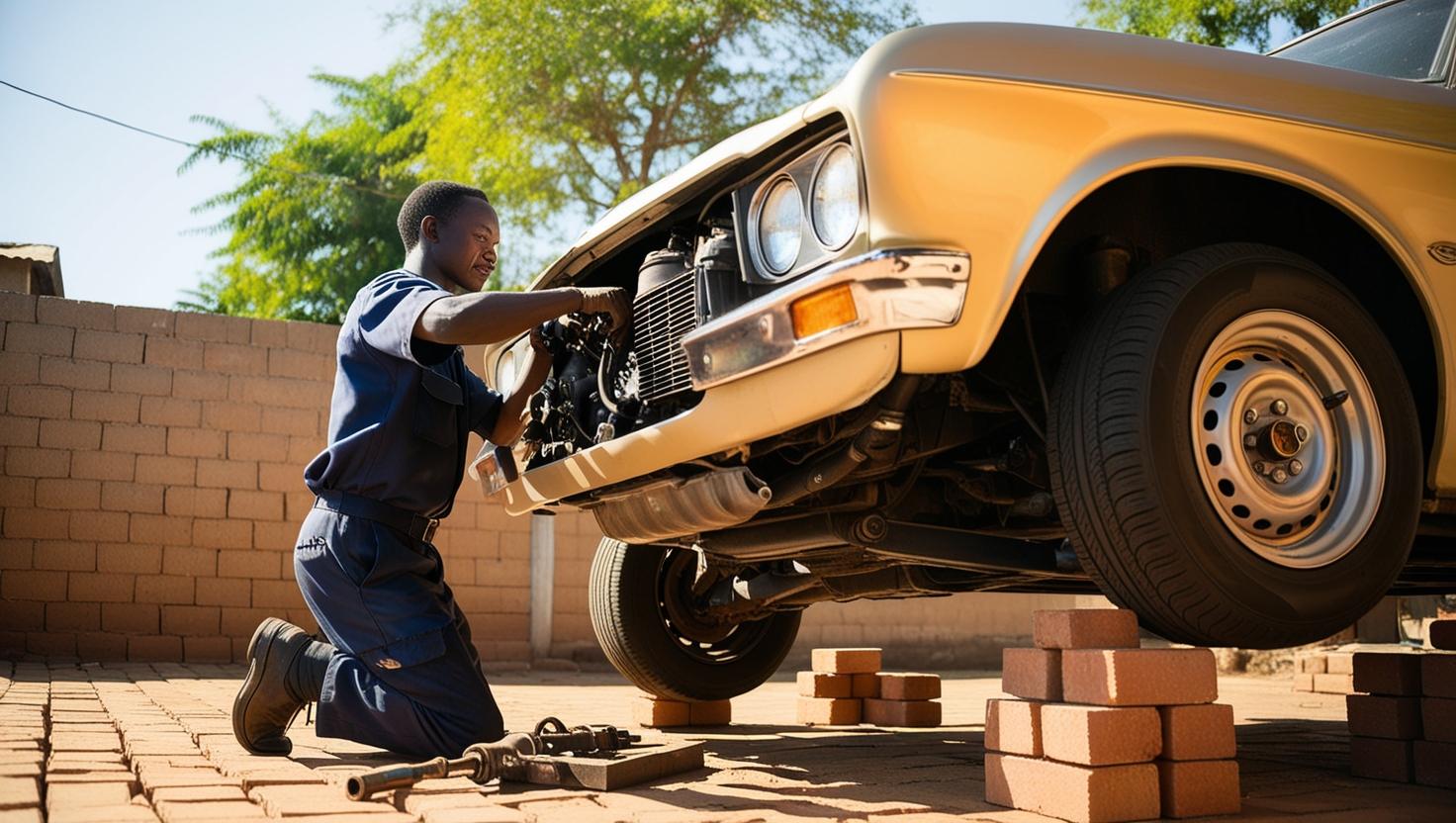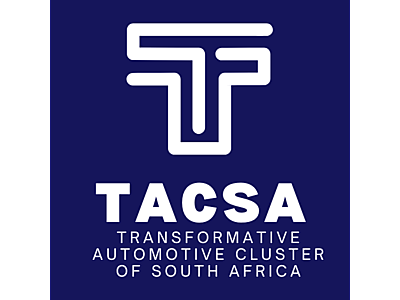In a country where over 40% of young people are unemployed and informal mechanics operate without recognition or resources, the Transformative Automotive Cluster South Africa (TACSA) has emerged as a bold and strategic solution. More than just a development programme, TACSA is a game-changer—redefining how township and rural communities engage with South Africa’s automotive economy.

Continue Reading
automotive innovation, economic inclusion, ev training, informal sector transformation, skills development, tacsa, township economy, workshop modernisation, youth employment
South Africa’s automotive industry is one of the most advanced in Africa—yet its benefits have not fully reached township and rural communities. The Transformative Automotive Cluster South Africa (TACSA) is changing that. This initiative is redefining the future of informal mechanics, bridging the youth skills gap, and laying the foundation for a sustainable, inclusive automotive ecosystem.

Continue Reading
automotive industry, ev skills, informal sector transformation, public-private partnerships., south africa, tacsa, township economy, workshop modernisation, youth skills development
As South Africa’s automotive landscape shifts toward electrification and localisation, Original Equipment Manufacturers (OEMs) have a crucial role to play—not just in production and sales, but in driving equitable development. One of the most promising opportunities for impact lies in supporting the Transformative Automotive Cluster South Africa (TACSA), a grassroots initiative focused on uplifting informal mechanics and modernising workshops across townships and rural communities.
.jpg)
Continue Reading
aftermarket solutions, automotive industry, ev transformation, industrial policy, oems, public-private partnerships., rural development, skills development, tacsa, township economy
Township automotive services form a vibrant, sizable segment of South Africa’s broader motor repairs ecosystem. Recent estimates suggest there are about 80,000 “kasimechanics” and panel-beaters operating informally, often from backyard garages or small street-side workshops. While South Africa’s formal automotive manufacturing contributes around 6–7% to GDP and employs over 110,000 directly, these township-based SMMEs are a quieter powerhouse—providing essential services to an unfinanced market that makes up nearly 40% of all vehicles. Though exact contributions are unregistered, their impact on local employment, vehicle upkeep, and grassroots economic activity is immense and frequently overlooked.

Recommended research - view here.
Continue Reading
 on
11 June 2025, 15:10
SAST
on
11 June 2025, 15:10
SAST



.jpg)
.png)
